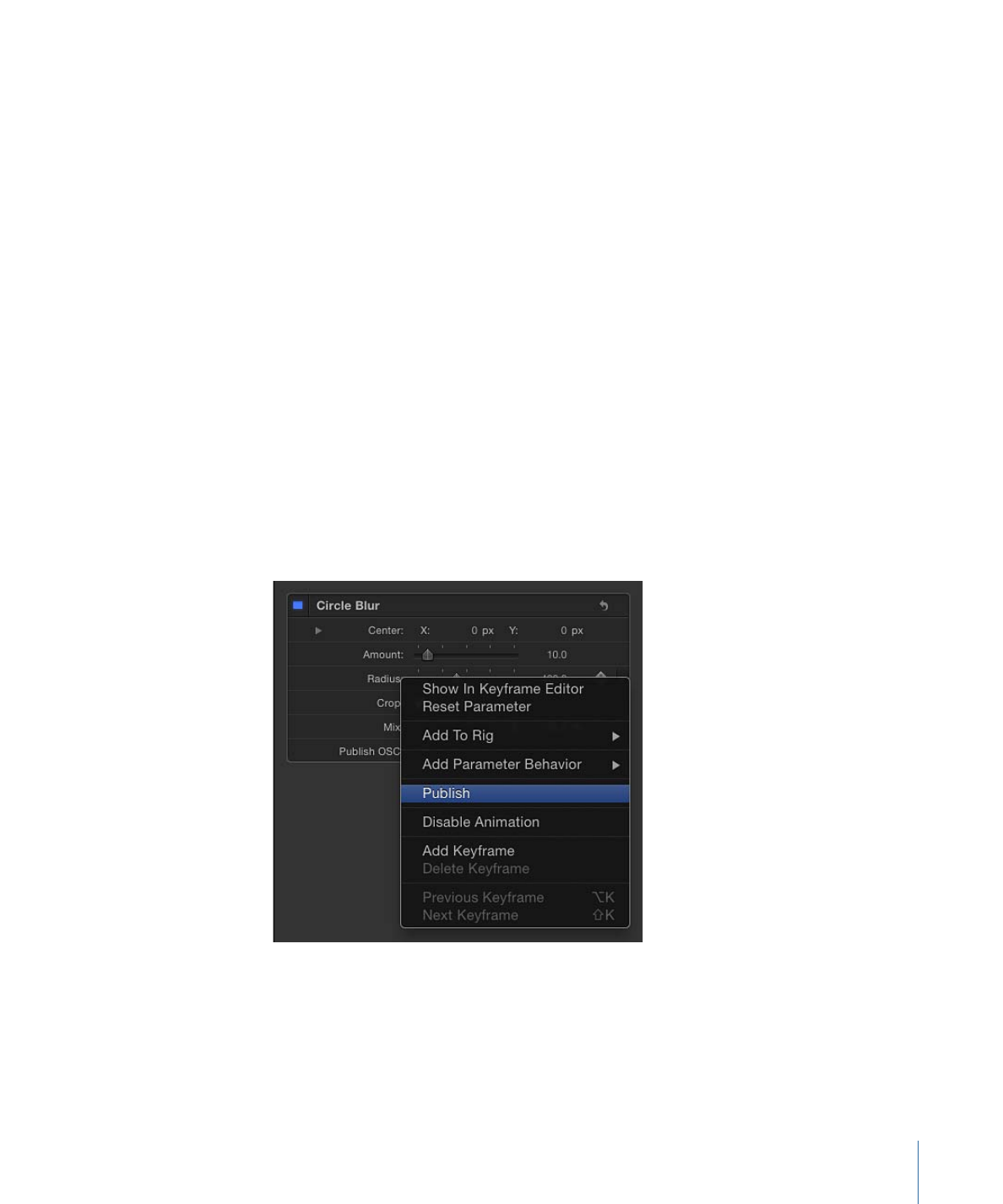
Publishing Filter Parameters and Onscreen Controls
When you create effects templates in Motion 5 for use in Final Cut Pro X, you can choose
which parameter controls are available in the special effect, title, transition, or generator
when it is applied to a clip in Final Cut Pro. For example, if you create a Final Cut effect
template using a Scrape filter, you can export the Rotation control to Final Cut Pro, but
not the Amount or Mix sliders. In essence, you place limits on how the effect can be
modified in Final Cut Pro by deciding which parameters to publish. It’s easy to publish
specific filter controls, including onscreen controls, in Final Cut templates. You do so via
the Publish command in the Motion Animation menu.
For more information on publishing and Final Cut Pro X templates, see
Creating Templates
for Final Cut Pro X
.
To publish filter parameters in a Final Cut template
1
In an open Final Cut template project, select a filter.
2
In the Filters Inspector, do one of the following:
• Click the Animation menu (the downward triangle that appears when you move the
pointer over the right end of the parameter row), then choose Publish from the pop-up
menu.
• Control-click the parameter name, then choose Publish from the shortcut menu.
Important:
Choosing Publish in the filter name row (the row containing the blue
activation checkbox) publishes the filter’s on/off checkbox—but not parameter controls
for the filter (sliders, dials, and so on). Publishing a filter’s checkbox allows you to turn
on or off all published parameters simultaneously in Final Cut Pro X.
1005
Chapter 19
Using Filters

To publish a filter’s onscreen controls
1
In the open template project, select a filter.
2
In the Filters Inspector, select the Publish OSC checkbox.
To review parameters set to be published in your template
1
In the Layers list, click the Project object.
2
In the Project Inspector, click Publishing.
All parameters (for all object types) set to be published appear in the Publishing pane.
Note: Published filter onscreen controls do not appear in the Publishing pane.
To unpublish filter parameters in the Filters Inspector
µ
In the Filters Inspector, do one of the following:
• Click the Animation menu (the downward triangle that appears when you move the
pointer over the right end of the parameter row), then choose Unpublish from the
pop-up menu.
• Control-click the parameter name, then choose Unpublish from the shortcut menu.
To unpublish filter parameters in the Publishing pane
1
In the Layers list, click the Project object.
2
In the Project Inspector, click Publishing, then do one of the following:
• Click the Animation menu (the downward triangle that appears when you move the
pointer over the right end of the parameter row), then choose Unpublish from the
pop-up menu.
• Control-click the parameter name, then choose Unpublish from the shortcut menu.